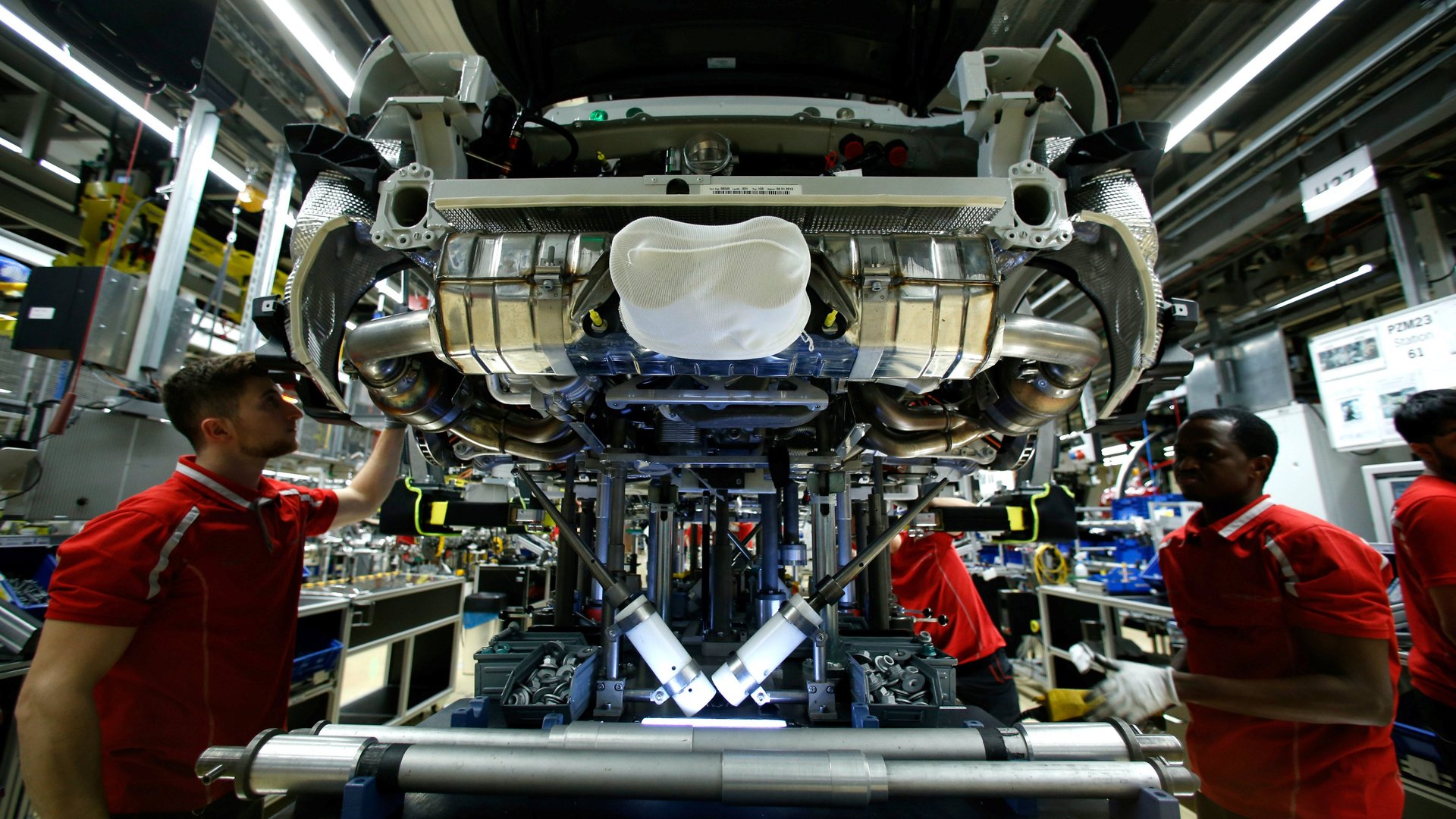That was quick: Europe’s growth spurt has already stalled out
Last year, the euro zone was the world’s unexpected economic success story. The region experienced its strongest year of growth in a decade as trade increased, business confidence improved, and loose monetary policy worked its magic. But there are already signs that Europe has lost some of its spark.


Last year, the euro zone was the world’s unexpected economic success story. The region experienced its strongest year of growth in a decade as trade increased, business confidence improved, and loose monetary policy worked its magic. But there are already signs that Europe has lost some of its spark.
In the first quarter of 2018, growth slowed down across the continent. The euro zone economy grew by 0.4% (pdf) versus the quarter before, compared to a 0.7% rate in the last quarter of 2017. GDP in Germany, the engine of the European economy, increased by 0.3% in the first three months of the year, half the pace of the previous quarter, the country’s statistics office said today.
In Spain, the annual rate of GDP growth slowed to 2.9% (pdf) in the first quarter, from 3.1% in the last two quarters of 2017. Italy’s annual rate of GDP growth also slowed. Of the 19 European Union countries that have reported first quarter GDP so far, only Poland, Finland, Bulgaria, and Latvia experienced a faster pace of economic growth in the first quarter.
The European Central Bank says it isn’t worried yet about the slowdown in growth. Policymakers have been out in force saying that growth is still within their projections, and the loss of momentum is probably only temporary.
Extreme cold weather, strikes, and an early Easter holiday period are some of the reasons that suggest this slowdown could be a blip instead of a trend. Even though Germany’s recent GDP reading is the slowest since 2016, the country has now experienced 15 consecutive quarters of growth, the longest run since 1991. Analysts at ING argue there is little reason to doubt the strength of this recovery, apart from maybe concerns about trade.
The IMF also said today that it expects Europe’s growth to pick up; it revised up growth forecasts for the euro zone by 0.4 and 0.3 percentage points for 2018 and 2019, respectively. Still, the organization warned that medium-term prospects are “less bright” due to persistently high levels of unemployment and the drag from overdue economic reforms and fiscal tightening to reduce deficits.